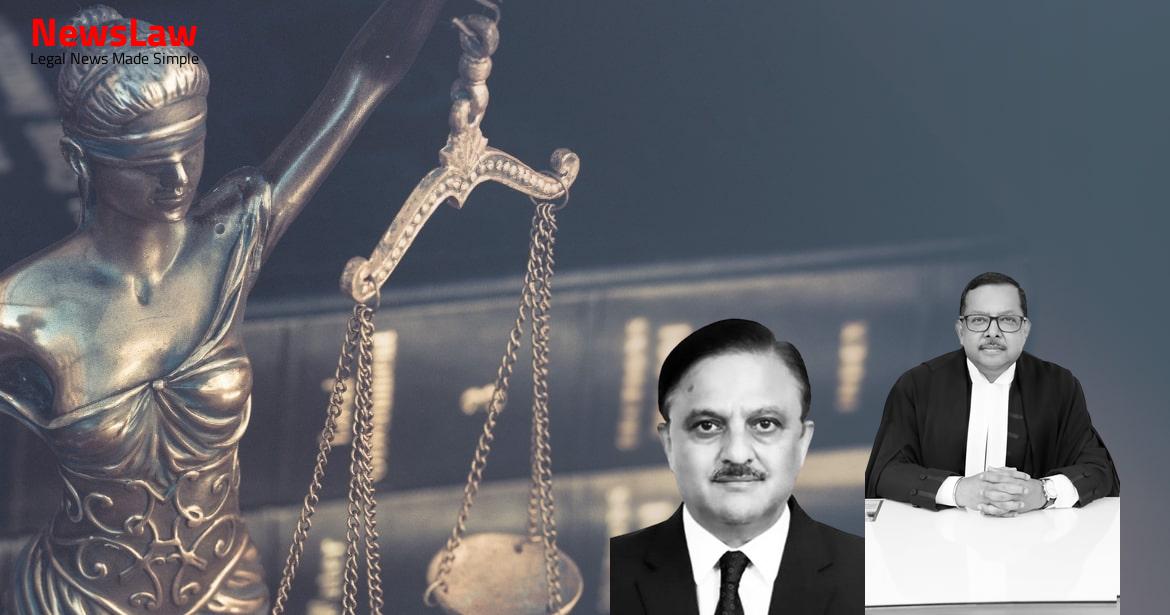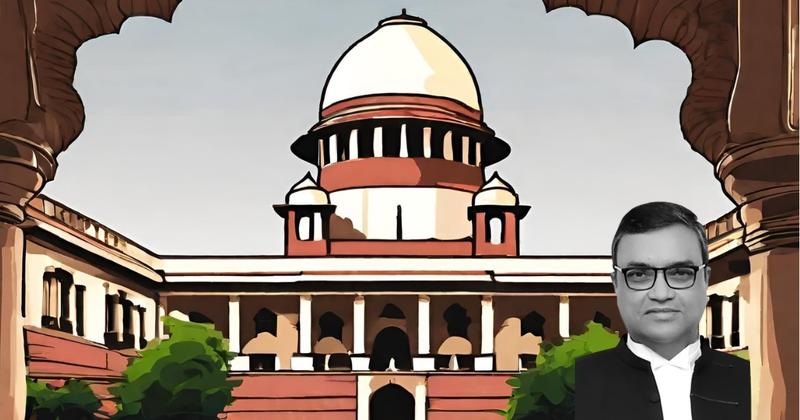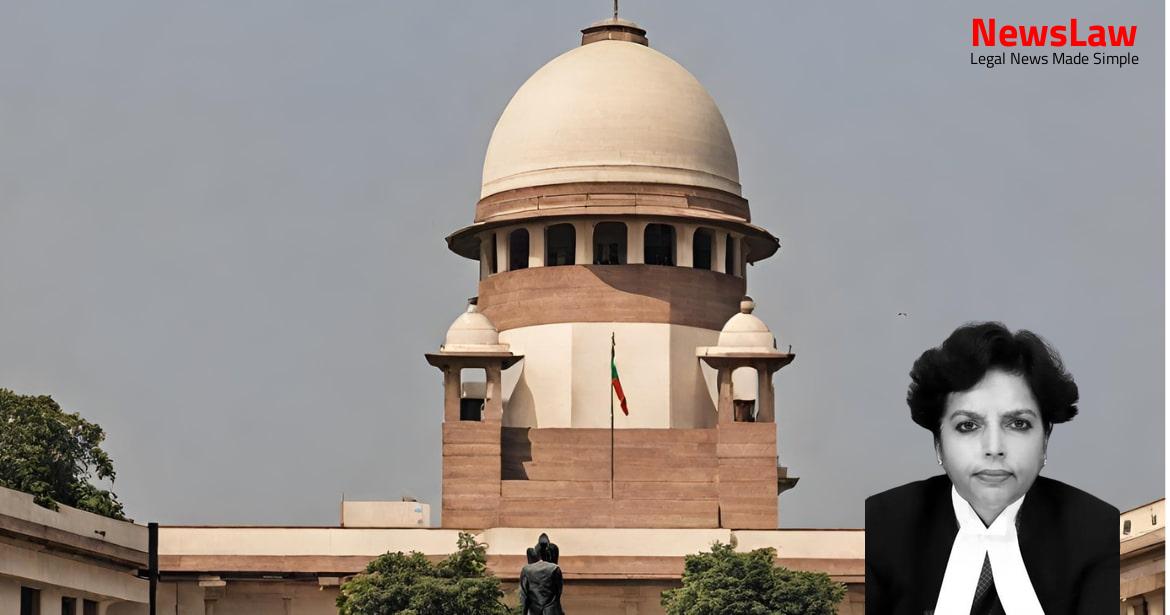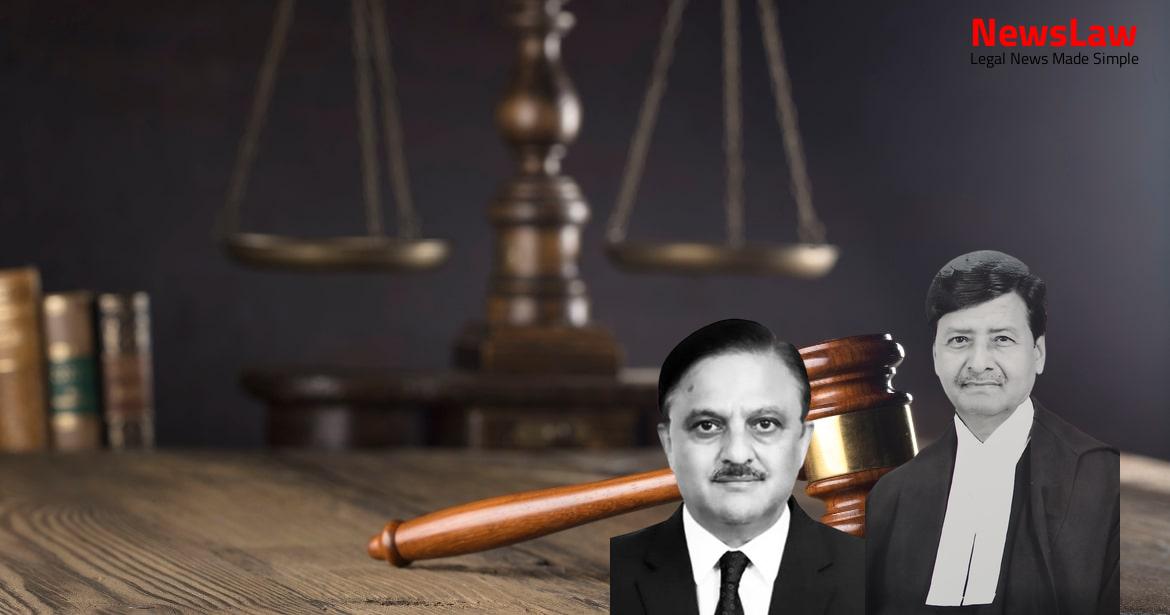In the case of State v. Appellants, the High Court overturned the conviction of the appellants, following a trial where the respondent State had prosecuted the appellants for various sections of the IPC. The petitioner argued against the High Court’s decision, highlighting flaws in the approach to appeals against acquittal. Let’s delve into the details of this legal battle and the implications of the reversal of the conviction.
Facts
- Deceased succumbed to injuries on 18 September 1996.
- Deceased suffered a large number of injuries.
- Judgment dated 5 July 1997.
- Deceased had two brothers.
- On 17 September 1996, PW-1 informed by Vajsurbhai about the assault on the deceased by appellants.
- Karshanbhai (PW-4) and other villagers were present during the alleged assault.
- Appellants assaulted deceased with pipes and sticks.
- Deceased was immediately taken to Bhavnagar hospital on advice.
- Appellants (father and son) were prosecuted under IPC Sections 302 and 34.
- Deceased was in the diamond polishing business.
- Trial Court disbelieved testimony of PW-4 Karshanbhai.
- Incident occurred on 17 September 1996.
- Deceased initially taken to Dr. Goti’s clinic at Dhola village.
- PW-1, brother of deceased, met his uncle taking the deceased to the hospital.
- The High Court rejected the application for suspension of sentence and grant of bail by the first appellant.
- The second appellant was granted exemption from surrendering.
- The High Court converted the acquittal of the appellants into a conviction under various sections of the IPC.
- Discrepancies were noted between the statements of PW-4 regarding the date of his injuries.
- The High Court held that the appellants failed to provide evidence to contradict the prosecution’s version.
- The High Court sentenced the appellants to undergo life imprisonment after overturning their acquittal.
Also Read: Jaiprakash Associates Pvt Ltd v. Delhi Development Authority
Arguments
- Senior counsel argued that the High Court was incorrect in overturning the order of acquittal.
- He contended that the High Court’s approach to appeals against acquittal was flawed.
- There was no finding by the High Court that the guilt of the appellants had been conclusively proven based on the evidence.
- The State’s counsel argued that in an appeal against acquittal, the High Court is obligated to reevaluate the evidence.
- The counsel emphasized the reliability of PW-4, an eye-witness, whose evidence was found trustworthy by the High Court.
- This trust in PW-4’s testimony led the High Court to overturn the acquittal order.
- The State vehemently supported the High Court’s decision based on the confidence inspired by PW-4’s evidence.
Also Read: Balamurugan Murder Case: Police Interference and Acquittal
Analysis
- The High Court ignored the well-settled principle that an order of acquittal strengthens the presumption of innocence of the accused.
- The judgment of acquittal must be found to be perverse for it to be overturned.
- In cases with a statutory presumption, the burden of proof may shift to the accused after the prosecution’s initial burden is discharged.
- In the absence of statutory provisions, the burden was on the prosecution to prove guilt beyond a reasonable doubt.
- The Appellate Court cannot overturn an order of acquittal solely because another view is possible.
- The presence of Arjanbhai and Jivabhai was mentioned.
- The Trial Court provided reasons for rejecting the testimony of PW-4.
- The Appellate Court can interfere with an acquittal only if it determines the guilt of the accused was established beyond a reasonable doubt.
- The High Court erred in its finding on the burden of proof.
- Statements by witnesses indicate ongoing litigation between the appellants and PW-4’s family.
- Appellate Courts must reevaluate evidence before interfering with an order of acquittal.
- Statements recorded under Section 161 of CrPC cannot be used except to contradict the witness.
- The High Court disregarded a statement by PW-5 about the assault on the deceased.
- A crucial witness, Vajsurbhai, was not examined.
- The High Court failed to address the main question in its judgment.
- There is doubt about the presence of PW-4 during the incident.
- Prior enmity with appellants and failure to report incident to police were considered by Trial Court.
- Trial Court found evidence of PW-4 did not inspire confidence, a possible finding based on evidence on record.
- High Court overturning acquittal was unwarranted as Trial Court’s findings were possible after reappreciating evidence.
Also Read: Ekene Godwin’s Bail Application Rejected: Legal Aid Advocacy Ordered
Decision
- The appeal has succeeded
- The bail bonds of the appellant No.2 are cancelled
- Appellant No.1 shall be released immediately unless required for another case
- The appeal is allowed
- The High Court judgment and order of December 14, 2018, are set aside
- The appellants’ conviction is set aside and the Trial Court’s judgment of July 5, 1997, is restored
Case Title: BHUPATBHAI BACHUBHAI CHAVDA Vs. THE STATE OF GUJARAT (2024 INSC 295)
Case Number: Crl.A. No.-000334 / 2019



